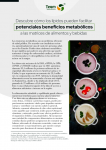Efforts to reduce trans fats are working, study suggests

The researchers, from the Centers for Disease Control and Prevention (CDC), used National Health and Nutrition Examination Survey (NHANES) data to study trans fatty acids in the blood of a nationally representative sample of 229 white American adults in 2000 and 292 in 2009.
They claim that this is the first time trans fatty acid blood levels have been examined in the white American adult population. However, they cautioned that the data was preliminary, and the findings could not be generalized to other racial or ethnic groups.
Food manufacturers have been under increasing pressure to eliminate artificial trans fats from foods, after evidence mounted to show they raise levels of LDL (so-called ‘bad’) cholesterol, while lowering levels of HDL (‘good’) cholesterol, thereby clogging arteries and causing heart disease.
But artificial trans fat in the form of partially hydrogenated oil is cheaper to produce than healthier oils like sunflower or olive oil, provides food manufacturers with greater processing stability, and gives foods a longer shelf life. Therefore, margarines and commercially produced shortenings in the US have traditionally contained high levels of hydrogenated fats, most often used for baked and fried foods.
Consumer advocacy group, the Center for Science in the Public Interest (CSPI), said that the dramatic drop was likely to have saved thousands of heart attacks and premature deaths each year.
“Credit for the reductions in trans fat is shared by many parties,” it said, praising regional bans on artificial trans fat from restaurant food, voluntary action by the food industry, and the work of oil processors and seed developers in developing healthier oils.
“The FDA helped greatly by requiring that trans fat be listed on Nutrition Facts labels,” it added.
On the back of growing concern, the FDA issued a regulation in 2003 requiring manufacturers to list trans fatty acids on the nutrition panel of foods, providing further motivation for manufacturers to slice trans fats from their products.
The regulation came into effect in 2006, while states and local governments, retailers and certain market segments demanded complete elimination of artificial trans fat. Trans fat bans now cover parts of the United States that account for about 20% of the population, including New York City, Philadelphia, and the State of California.















